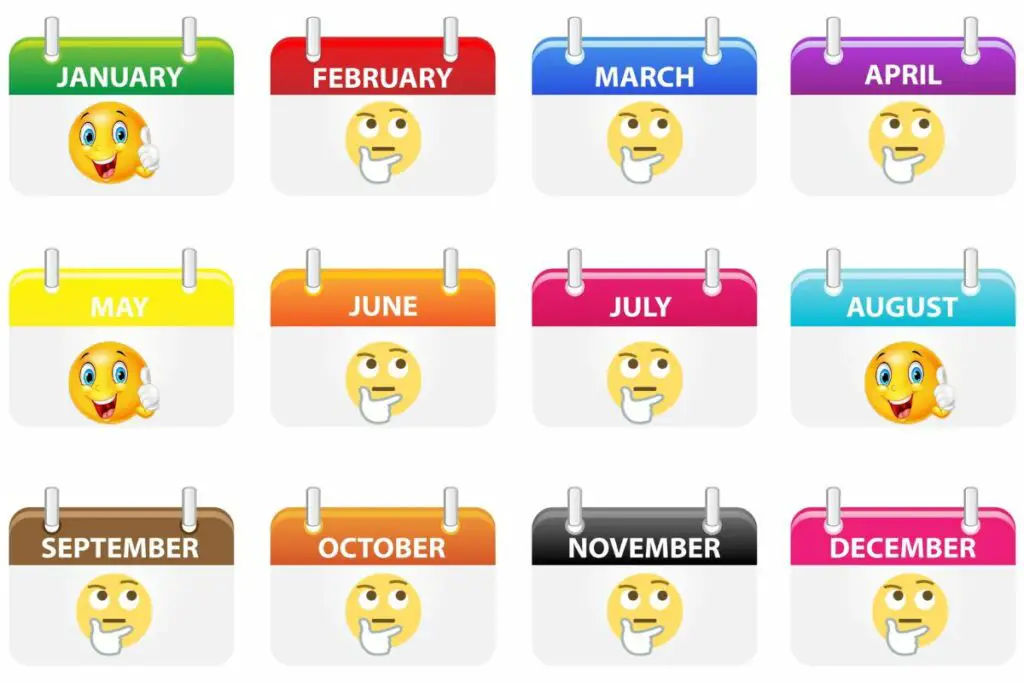When it comes to taking the IELTS exam, candidates confront numerous challenges, the majority of them concern preparation tactics, which mode of IELTS to select, and which month is the best to take the exam.

The ideal months to take the IELTS academic exams are January, May, and August, which correspond to the spring, summer, and fall semesters of university admissions. For General IELTS, which is mainly used for PR or employment abroad, it is recommended to take the exam as soon as your paperwork for residency or work begins.
When taking an examination, it is critical to plan ahead of time, and this is dependent on a variety of factors
1. Your Current English Proficiency
Before you decide to take the exam, you need to know where your existing English language skills stand. If you believe you will need additional time to prepare for IELTS, you must plan your applications accordingly because IELTS scores are required to complete your application for many universities. However, for purposes of Permanent Residency or Employment, you may be assigned a deadline by which an agency or organisation requires your IELTS results.
2. Your Planned Intake
In most foreign nations, there are three intakes per year: summer, spring, and fall. Candidates are encouraged to apply well in advance of these intake times to ensure admission. International students face multiple challenges, including visa procedures, acquiring cash for course fees as well as living expenses, and proving English competency through tests such as the IELTS. So, deciding ahead of time when to take the IELTS exam is critical for a smooth application procedure.
Let’s take a look at the best months to take the IELTS exam based on the annual intake that you intend to enrol in:
1. August – for intake in January ( Spring intake)
It is preferable to take the exam by August or September for the January intake. After receiving an offer letter from a university, you can proceed with the rest of the procedures only if you have the required IELTS band score. Keep in mind that for January intake, you should start your application process as soon as possible because there will be a nearly three-week winter break in December, and the paperwork will be slow due to the holiday season.
2. January – for intake in May/June ( Summer Intake)
A study visa application takes about three months on average. This can, however, be extended due to delays in paperwork or bank processes. So it is advisable to take the exam in January so that you can get started on arranging the necessary certificates, transcripts, bank statements, and other documents for the study visa application.
3. May – intake for September( Fall intake)
The three-month rule is also appropriate for fall intake. If you complete your IELTS by May, you will have one less thing to worry about until you receive your CAS (Confirmation of Acceptance of Studies) from your university, which will confirm your admission, and then you can proceed to the visa processing, which could take less than a month if you have sufficient funds.
When should I write the IELTS if I want to apply for Permanent Residency?
Unlike studying abroad, where applications can be submitted before taking the IELTS, if you wish to apply for PR or employment, you can only begin the paperwork once you have taken the IELTS and received the required results. The direct PR application process might take anywhere from six months to two years.
So, as soon as you decide to migrate, you should begin preparing for the IELTS examination and take it when you are confident. You can begin your application process once you have received your requisite scores, which should be a minimum of 7778 (Listening 8, Reading, Writing, and Speaking 7) band score. At the moment, only Canada and Australia accept direct PR applications.
When should I write the IELTS if I have an Employment opportunity?
Many people are fortunate enough to be able to migrate overseas after receiving a job offer; for such applicants, it is best to take the IELTS exam as soon as they begin applying for jobs. Though not mandatory, many employers look for an IELTS score on a résumé when hiring a professional from a non-English speaking country.
However, some employers set a deadline for you to submit your IELTS result in response to their requirement. Additionally, the scores required for IELTS if you have a job offer are considerably less except for senior designations. For manual or skilled work, the scores required could be as low as 5.5 overall band. So it is important to take your IELTS and get the required score to increase your chances of getting a job offer.
In which months do the speaking topics change?
Along with the previously listed aspects, there is one more factor to consider while selecting a month to take the examination. It is frequently observed that new speaking topics are added to the IELTS each January, May, and September. 50% of previously used topics will be repeated again.
It is, however, hard to predict which of them will change and which will not. So it is preferable to take the exam soon before the topics change, that is, at the end of December, April, and August, when you will be familiar with 99% of the topics (there could always be surprises) and will have enough time to prepare for all of them.
Remember to reserve your IELTS exam dates at least two weeks before the date you intend to take the exam. This is especially important during the months of January, June, and September when a large number of candidates sit for the exam and the slots may be filled.

